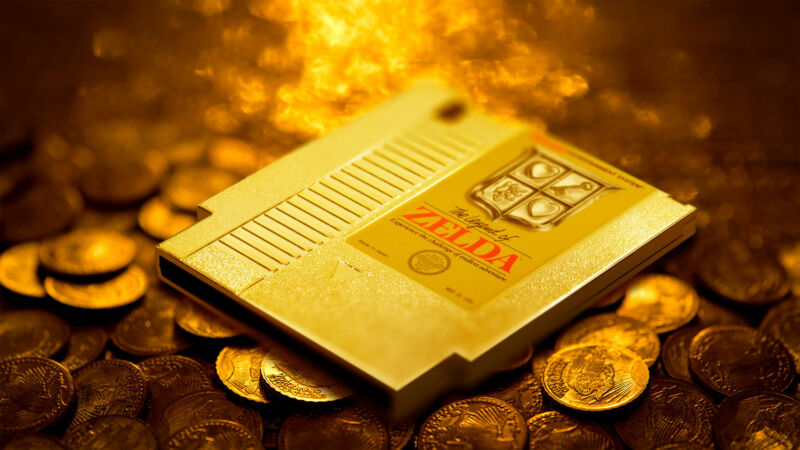
Enlarge / Some copies of The Legend of Zelda might be worth less if they were made of real gold… (credit: Aurich Lawson | Getty Images)
This summer, when a copy of Super Mario 64 sold for over $1.5 million, no one could say for sure just how rare it was to find a copy in such pristine, unopened condition. That’s because Wata Games—the company that’s come to dominate the market for professional grading of video game rarities—wasn’t releasing the population reports that would detail the quantity and quality of all the games that had come across its desk.
Now, Wata is beginning to open up a little bit, releasing its first partial population report for NES games and announcing plans to publish more robust data covering more consoles in the near future. The numbers in that first report show just how rare it is for Nintendo boxes to still exist in sealed, unopened condition decades later, and the report gives the public and collectors an idea which NES games are likely to be the most valuable to the right collector.
The time is now
So-called population reports—in which a collectible grading service shares the distribution of quality grades for every piece it has ever seen—have long been common in high-end collectible markets like sports cards and coins. But back in July, Wata’s then-CEO (and current vice president of new ventures for new parent company Collector’s Universe) Ryan Sabga told Ars he was hesitant to release such a report for video games.
